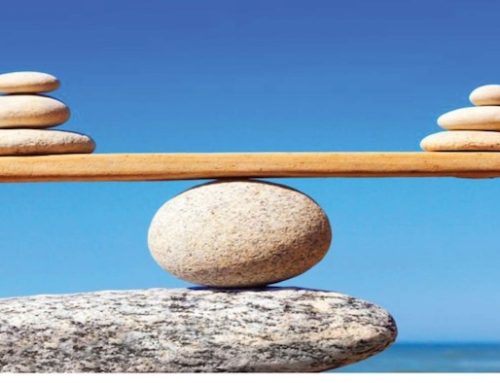There have been several so-called “Greats” in American history. Two Great Awakenings that inspired heightened religious fervor through revivals. The first began around 1730 and the second in the early 1800s. Then there was the Great War, later re-named Word War I when the second world war proved the Great War was not great enough to end all wars. And, of course, the Great Depression in the 1930s. That was a doozy. LBJ claimed a great one with his Great Society, which intended a liberal remake of social and economic order in the 1960s. Its greatness fizzled in the shadow of the not-so-great Vietnam War. Most recently, just fourteen years ago, the Great Recession from 2008 to 2010. I admit that one seems like just yesterday, but such is the time-warp that accompanies later-life temporal disorientations. Up next: the Great Reckoning.
Intrinsic to its meaning, great suggests an order of magnitude beyond what we might consider normal. Something unusual; often tumultuous. Sometimes inspirational and at others devastating. To be great is indeed to be extraordinary—for better or worse.
Transitions in American cultural dispositions that occur every couple of decades are a natural evolution from one mindset to the next—from one cyclic phase in our history to the next. Every transition offers the opportunity and/or risk of a great event to occur. Based on my reading of history, we are poised to experience such a cultural transition very soon where politics, economics, and social norms will face a reckoning unlike we have seen in decades—probably since the late 1920s when we moved from the period of idealism (Idealism II: 1915-29) to the crisis of the Great Depression and World War II (Crisis III: 1930-45). This transition will be different, however, inasmuch as we are moving on from a crisis rather than into one. We are moving from the current crisis, which I called the Age of Deceit (Crisis IV: 2003 to present), to a period of objectivism (which always follow crises), the last one being Objectivism III from 1945-62.
Today, we stand at the precipice of Objectivism IV (2023+), which is the second phase in a four-phase cycle pattern of history that has persisted since the founding of our country. The three prior cycles of American history were: Land of the Free (1774-1859), Land of Opportunity (1860-1929), and Superpower (1930-2003). (See Saving America in the Age of Deceit chapters 1-3.) All crises eventually end. The Age of Deceit with its War on Terror, Great Recession, pandemic, domestic terrorism, and pervasive political dysfunction has cost more than a million American lives and has put our representative democracy in peril. It is only natural that we seek stability, predictability, and fairness, which is what periods of objectivism aim to secure.
Let’s face it, bullshit had a helluva run. But, in the long run, truth always prevails. The lies we have told and have been told were only tolerable in a world of high growth and affluence where consequences were limited and, therefore, did not curtail either the quantity or grandiosity of our deceits. The decline of economic growth and attendant affluence, brought on by policies of fiscal necessity associated with the pandemic, and the general collapse of globalism underway due to the rise of authoritarian regimes and Putin’s war, mean that the slack in the system that gave room to accommodate deceit is vanishing quickly. High stubborn inflation, coupled with a global risk rout deflating asset prices by trillions of dollars, and a looming global recession means only truth—often hard truths—will be, or even can be considered in decision-making from governments to boardrooms to household dinner tables. Severe economic downturns are always sobering. The days of magical thinking are coming to an inglorious end.
As we enter the autumn of 2022, the chickens for people like Trump and Putin—icons of the era—are coming home to roost. And, there will be no room for either of them in the henhouse of truth. As Maureen Dowd noted recently in the New York Times, “each created a scrim of lies to justify lunatic personal ambition.” While poetic justice may be the only justice they receive, for them a fate worse than death awaits: irrelevance. Those of us who have been tormented by the greed, cruelty, and dishonesty of people like Trump and Putin can rejoice, but that doesn’t mean the reckoning stops there. There will be pain for all of us, but it will also be worth it. At least we can smile through the pain on our road to liberation from the deceits that began with the Bush administration’s lies about WMD and al-Qaeda in Iraq in 2003, and ended with Trump’s many con-games. To be clear, it wasn’t only politics and government that were a hotbed of deceit; business, religion, education, law enforcement, media, and many other social institutions were guilty of numerous deceit-based schemes. It was the modality of the times.
So, what can we expect as we move through this fourth cycle of American history: the Great Reckoning?
Generally, periods of objectivism are where reason, character, and classic conservatism are highly valued over reckless idealism when hubris, certitude and grandeur prevail. During periods of objectivism, terms like unity, reason, inclusion, pragmatism, tolerance, risk aversion, stability, restraint, containment, self-reliance, meritocracy, frugality, humility, redemption, secularity, family, and community are prevalent. In philosophy, objectivism holds that there are certain things, especially moral principles, that are immutable and exist independently of human beliefs or preferences. There is plenty of room for personal agency, but little for delusion. Historically, presidents with military backgrounds like George Washington, Ulysses Grant, and Dwight Eisenhower performed well during periods of objectivism. That’s not to say our next president will be a former military general, but it most certainly will not be a former reality show host and real estate con-man. If it is, we and our representative democracy are doomed.
More specifically, in this period of objectivism, the first thing all of us will feel are those sobering effects of an economic downturn. Conspicuous consumption will fade from favor. Inflation up, growth down, unemployment and taxes both back up. Although many point to our Federal Reserve Bank and central banks around the world to curb inflation while maintaining growth, that magic combination is highly unlikely. Achieving a soft-landing appears to be more fantasy than probability. The only tool central banks have is monetary constraint accomplished primarily by raising the cost of capital. Demand destruction may destroy the economy before inflation subsides. It is akin to chemotherapy for treating cancer: you may kill the patient before you kill the disease. Those economists who twisted themselves inside-out in their attempt to convince us that public debt doesn’t matter will magically disappear from public life soon; perhaps even enter rehab.
Beyond economics is where it gets more interesting. In national and international security issues, adventurism like the American neo-con impulse to remake the world in our own image (like Bush/Cheney), or a dictator’s desire to capture more territory (like Putin or Xi) will suffer serious long-term consequences. On domestic terrorism, which is the principal security threat in America, Americans will demand and receive much more aggressive law enforcement tactics and legal consequences for terrorists who are predominantly young white males with assault rifles. Investment in research and development—both public and private—will also become more essential and more focused. Research and development will be less interested in digital social puffery and more targeted at lowering carbon dioxide. Do we really need to experience fake life through Zuckerberg’s new goggles? Can’t we just fix our real lives? Technology will be seen as a critical element in saving ourselves from many pressing issues, especially climate change. On investment in public goods, education will, once again (as it does in every period of objectivism), rise to the top of the list. Secularity will also rise throughout the objectivism phase as religiosity retreats from the public and political spheres of influence. Finally, social character will, once again, value integrity over vainglorious flamboyance. Honesty, humility, and self-restraint will return as positive differentiators in selecting leaders in all corners of American life. There will simply be no more tolerance for show-ponies and charlatans.
On a more personal level, those who continue to chase wants and desires—who believe the grass is always greener on the other side of the fence—will likely face crushing disappointment. Living on the treadmill of egocentric satisfaction will quickly become unsustainable. It’s time to put your ego into a reality-induced coma. Let your soul—where values and wisdom reside—be your guide. If it feels good, do it? Not so much. If you’ve made a serious strategic error in relationship or economic matters, unwind that mistake as soon as possible. If you don’t, the marketplace of truth will do it for you. Magical thinking is never more dangerous than during periods of reckoning. Penance may not suffice; mercy may be unavailable. Those who refuse moral sobriety may be forced to consider asceticism. Unfortunately for many folks, liberation from the Age of Deceit will only be achieved through suffering. Enlightenment is a much better choice.
This period of reckoning will be painful, but also tremendously beneficial for America and for humankind. Returning to the truth and treating each other with respect is the only way forward. New contemplations of what defines progress and success are being examined by very thoughtful people like technologist Patrick Collison and economist Tyler Cowen. The answers to basic questions like, What is prosperity?, may be very different in the future than the past. The rhetorically popular adage “less is more” may finally be actualized. Fundamental attitudes about what constitutes fulfillment in life will have to change. No longer will our culture be driven by economic, physical/body, and popularity metrics alone. Dignity as a measure of well-being will become a new focus of public policy. Spiritual metrics associated with happiness and psychological well-being will gain stature.
At the onset of Crisis II, the American Civil War, President Abraham Lincoln in his first inaugural address summoned the “better angels of our nature” to strum “the mystic chords of memory” in his hope that Americans of all backgrounds and dispositions would recall and embrace the impetus of unity to preempt the bloody war that followed. His words were heard, but unheeded. Today, we are similarly divided. Unfortunately, crises have proven the only way Americans awaken to correct course to save themselves from themselves. For whatever reason, Americans prefer to do things the hard way. As Winston Churchill (supposedly) once observed, “You can always count on the Americans to do the right thing after they have tried everything else first.”
Periods of change—especially tumultuous change—are never easy. Homo sapiens much prefer homeostasis. Our job now is to realize that resisting reality and its underlying truths is a delusion we can no longer entertain. We deserve what is coming, which may seem harsh. But as every grade school teacher coaxes their reluctant students: “We can do hard things!” The smartest among us will realize the best approach is to quit demonizing each other to claim victimhood and reach for courage rather than indulging cowardice to save ourselves and our country.
That is what winners do.






